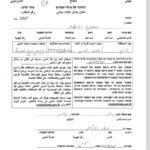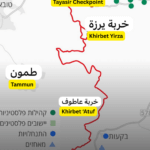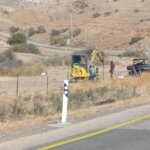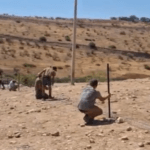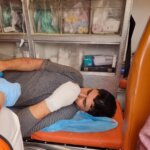More proposals to ethnically cleanse Palestinian communities in the northern Jordan Valley
A new Israeli government plan for the northern part of the Jordan Valley threatens twelve Palestinian villages and smaller communities with total destruction.
For many decades the thousands of Palestinian farmers and herders and their families living in this area have suffered the consequences of living within the 89% of the land under Israeli control (Area C). These have included: land expropriation to benefit the 13 illegal colonies and their agribusinesses; hundreds of house demolitions (usually in the sweltering heat of mid-summer or in the freezing temperatures of mid-winter); the destruction and confiscation of water sources, attacks by settlers on individuals and property resulting in injuries and deaths; destruction of electricity supplies, often provided by international NGOs; the stealing and killing of animals and the killing and maiming of children and adults by mines left by Israeli soldiers in and around the villages located in areas classified as ‘Closed Military Firing Zones.’
The plan currently being compiled aims to connect all 13 illegal colonies (Baka’ot, Givat Sa’alit, Hamdat, Maskiyot, Mekhola, Ro’i, Rotem, Shadmot, Mehola and a new colony currently under construction) by two existing roads – the N90 and the Alon Road (route 578) – to form one large, closed Israeli agricultural area.
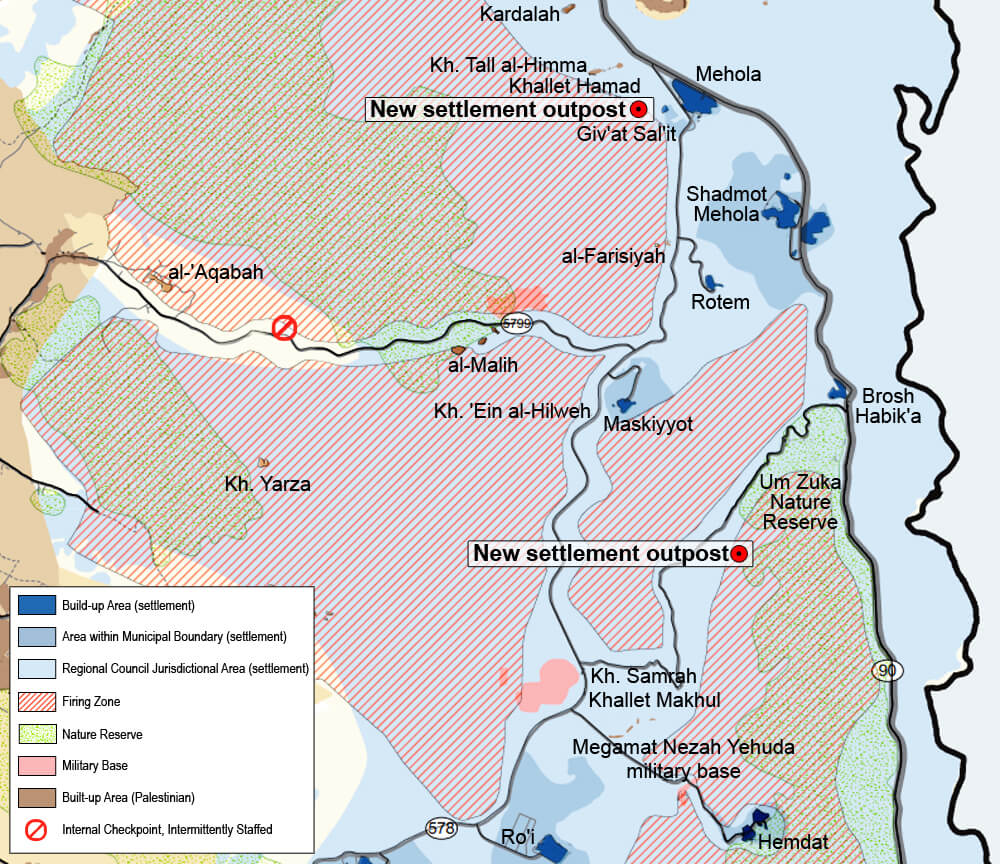
At the present time, the N90 is a main road used by both Palestinians and settlers, which extends the full length of the Jordan Valley and thereby allows access to isolated Palestinian villages and smaller herding communities in the Valley as well as to all the existing illegal colonies. The Aron Road, also used by Palestinians and settlers, again connects some colonies as well as other Palestinian villages and herding communities. About half-way down the Jordan Valley it connects with the N90.
This new scheme intends to make the N90 and the Aron Road into settler-only roads to serve as a link between the colonies. The Israeli government has said it will build in their place a much shorter road for Palestinians between Tubas, the main Palestinian town in the area, and the village of Bardala, just 20km away. Access to and from all the other villages and communities scattered around the North Jordan Valley will be cut.
In addition to the practical problems that such a policy entails for their day-to-day existence and access to services, the residents of these communities will find themselves in imminent danger of being the victims of ethnic cleansing – being driven out of the area with their villages completely erased. Such a policy would enable the Israelis to take over the whole area to expand further their colonies and agribusinesses, together with its water sources which are the most extensive of the whole of the Jordan Valley.
The prospect of Israel’s increasing access to water sources may explain a recent development in the Northern Jordan Valley. Since September 2018, Israel has begun the installation of major water pipelines in the area which are being directed northwards towards the 1948 boundary. It is feared that the Israeli state intends to extend its use of the precious water resources, stolen from the expelled Palestinian population, to the northern part of Israel itself.
Whether this is the case or not, the Israeli policy of ethnic cleansing in the occupied West Bank has long been evident, even to the casual traveller who will have observed that road signs only indicate where illegal colonies are located and the names of major Palestinian towns are given Hebrew names. Names of Palestinian villages and small towns do not appear, indicating that for the Israeli authorities at best, Palestinians have no business to live there and at worst, that they should not exist. There have, of course, been many cases of ethnic cleansing of villages in the occupied West Bank as well as in Israel itself, but the Northern Jordan Valley scheme will be an example of this policy on a much larger scale, indicating in turn the increasingly brutal racist nature of the Israeli state. This state, which calls itself “The only democracy in the Middle East” seeks to stifle criticism and calls for measures to be taken against its racist ideology, not just in Palestine but in many other countries around the world. It is for this reason that schemes, such as that being planned for the Northern Jordan Valley should be widely publicised as a matter of urgency to governments and international institutions.
There are also more than 130 students who are not attending schools, where the occupation aims at making the Palestinians ignorant. Hence, we have decided to provide a school for children.

